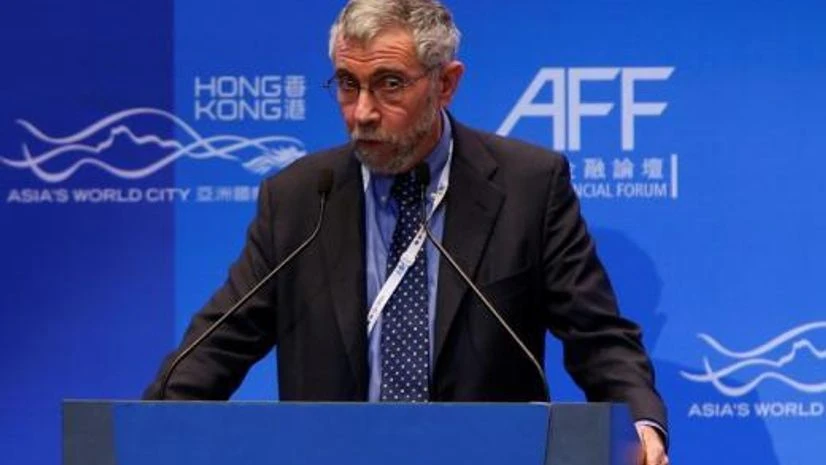There is "quite a good chance" of a global recession late this year or next year, Nobel Prize-winning economist Paul Krugman has warned, citing a general lack of preparedness among economic policymakers.
Speaking at the World Government Summit in Dubai, Krugman said it was unlikely that just "one big thing" would prompt an economic downturn.
He said a range of economic headwinds would increase the likelihood of a slowdown.
"I think that there is quite a good chance that we will have a recession late this year or next year," he said.
"The main concern has always been that we don't have an effective response if things slow down...We don't seem to have a safety net," the eminent academic said.
Noting that the central banks often lack the tools available to insulate against market turmoil, Krugman said the planning for risk has been minimal.
More From This Section
He said instead trade wars and growing protectionism continue to dominate policy agendas, deferring attention and resources from what should be the real priorities.
Drawing an analogy between the state of the global economy and the famous Titanic ship, Krugman said, "I don't see the iceberg out there, but if we do hit one, I know for sure this liner is not unsinkable".
Krugman said stagnant wages, growing inequalities and a loss of confidence in the world's business leaders have created a spirited populist backlash against globalisation.
"The result is clear: Forward motion on globalisation has stopped, but it was slowing anyway," he said.
Krugman said people feel they have been short-changed by the last generation of economic growth, and the consensus around the problem is not mirrored in discussions of the solution.
"The question is what they want as the solution...Turns out that's not as clear," Krugman said, pointing to the gap that leaders must fill in order to avert the next Great Depression.
Krugman also expressed skepticism about the promise of the Fourth Industrial Revolution.
"Technological change is actually relatively sluggish right now," he said.
He warned against the calls of an impending "labour Armageddon" at the hands of increasing digitalisation.
"This is not a transformative revolutionary era," he said on Sunday, adding that despite the technological advancements in the last 25 years, the way people work has not changed all that much.
Krugman is a professor emeritus of Princeton University's Woodrow Wilson School. He won the Nobel Prize in 2008 for his work on economic geography and identifying international trade patterns.

)
